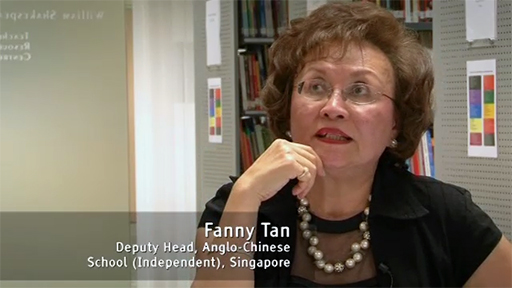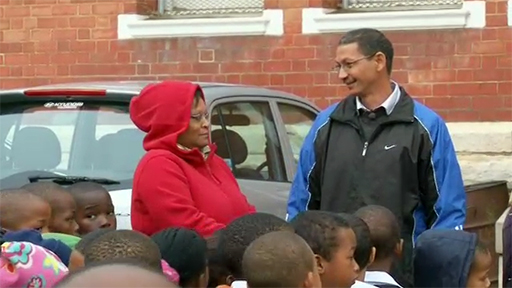1 Societal culture
Culture, in the sense we are using it here, is an anthropological term that, in essence, defines the individuality or uniqueness of a society, organisation or social group.
The following activites will help you to focus on societal culture more closely.
Activity 1
Watch the film clip below, which is commenting on aspects of education in Singapore. As you watch, make notes on what it says about the societal culture in Singapore. You need to be aware that the narration on all the video clips has a tendency to make very broad generalisations.

Transcript: Video 1
Discussion
Between the commentary and the interview with Clive Dimmock there are several points made about the societal culture. The overwhelming one is the centralisation of education policy, and the rules and regulations the school leaders are expected to follow. The point is made that the exact way that the rules are followed in a particular school is very much for the leader to decide, but nonetheless, as government employees, they are part of a very hierarchical system.
Now let’s have a look at the interaction between these various levels of context and culture in a school environment.
Activity 2
Watch the following film clip, which is from a primary school in South Africa. As you watch, try to pick out the various levels of impact – international, national, community/local, and internal – on the leadership of the school.

Transcript: Video 2
Discussion
Jamiel Alexander comments on how the culture of the school has changed since the ending of apartheid, which was a huge national change. This has altered the external context of the school. His deputy comments on how Jamiel’s relationship with the staff had to change to a more collaborative, democratic and consultative one. This was a change in the internal context of the school in response to a change in societal culture. The community used to look to the school principal for advice and leadership. Jamiel feels that this local context has now changed a little, with the school taking on a more proactive role in the community. He also comments on the need for the culture of the school to raise the aspirations of the young people, who he feels bring the very low expectations of their community into the school.
